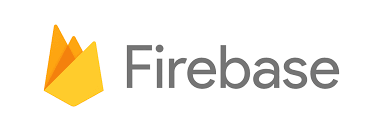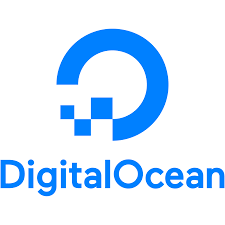How Much Does It Cost to Host a Mobile App?
As the world evolves and turns digital, mobile apps become a demand. Mobile apps also evolve and are designed and developed according to the changing needs of the world.
Contents
- 1 What is a Mobile App?
- 2 What is Cloud Hosting?
- 3 What are the Advantages of Cloud Hosting?
- 4 Hosting a Mobile App: How Much Does it Cost to Host a Mobile App?
- 5 App Hosting Costs | Comparison Table
- 6 Conclusion
- 7 FAQ
- 8 What are the Advantages of Cloud Hosting?
- 9 How Much Does It Cost to Host a Mobile App?
- 10 What are some examples of mobile hosting providers?
What is a Mobile App?
A software application developed mainly to be used more favorably on small, wireless computers, namely tablets and smartphones, than laptop or desktop computers. That is what a mobile application is!
A mobile app’s design needs to facilitate the limitations and demands of the devices that use it. This design also helps in taking advantage of the unique features the device offers. For instance, a gaming app could take advantage of an iPhone’s accelerometer.
Mobile apps are either web-based or native apps created distinctively for a certain platform. Hybrid apps, the third classification, incorporates the elements of both web-based and native apps. Mobile application development efforts are focused on making and developing browser-based, device-agnostic web applications as technologies evolve and mature.
What is Cloud Hosting?
Numerous servers are used in cloud hosting for balancing load and maximizing its uptime. Cloud hosting, a type of web hosting, makes a cluster from websites that use a centralized pool instead of only a single server. This hosting means that when one of the servers fails, another backs it up to keep the whole lot running.
One gets a part in the cloud cluster with cloud hosting in contrast with traditional web hosting wherein only a single server is used to obtain a specific amount of space. Think of the cloud as an interconnection of different computers. Resources are doubled and added to the general cloud as more and more servers get connected to the network.
What are the Advantages of Cloud Hosting?
- Scalability
Scalability is the essential key edge offered by cloud hosting compared to the other technologies developed before it. In hosting through the cloud app, opportunities for infrastructures to run numerous servers to provide more capacity are open and made possible. This scalability can accommodate sudden traffic surges is permitted. It also allows the creation of an infrastructure that grows with the requirements in the long run.
- Better Performance
Other than offering greater scalability, cloud hosting also offers better performance. As the capacity increases, it leads to an increase in the availability for customers. When using cloud hosting, load balancing across different servers is also permitted, resulting in lesser strains on any single server and a better user experience for all.
- Disaster Recovery
Another edge offered by cloud hosting is that it can make disaster recovery easier. You should use cloud hosting, especially when one uses a multi-server hosting architecture.
- Reduced Costs
Capital expenditures get reduced as cloud hosting can remove the need to buy, house, and maintain hardware. The need to pay for unused capacity also gets removed.
Hosting a Mobile App: How Much Does it Cost to Host a Mobile App?
One may get confused about the different options available for cloud hosting. Below is a list of the most promising cloud vendors to get a glimpse of how much cloud hosting can cost.
- Free Tier & Free Trial: Most providers will either present a Free Tier or Free Trial to let users start developing their applications for free.
- Usage-Based Model: Mobile app hosting providers, in most cases, will work with a pay-as-you pricing model that will charge users based on the usage of the app.
- Fixed Pricing: Alternatively, some vendors will also deliver a pre-defined resource structure with a pricing model.
- Pricing Range: Entry-level pricing starts at $5 per month.
Now, let’s compare some vendors.
Back4App

Using open-source technologies, Back4App is an easy way to build, host, and manage applications. Here, building relational models and performing complex relational queries in a serverless platform is more effortless. Back4App offers the following features:
- Managing and creating a Data model: To view analytics, schedule, and send push notifications, use an all-in-one dashboard for powerful data handling and manipulation. Use the Parse dashboard when creating classes and managing data.
- REST / GraphQL API tool. The API tool permits having easy and quick access to all the other features and functions of the REST / GraphQL API. This tool allows one to experiment with the API or even debug issues without writing codes.
- Automatic emails. Back4App allows the sending of verification and welcome emails to users automatically. Use the HTML template for this feature.
- Social login. With just a few codes, one’s a step away from connecting users via third-party social networks or traditional logins. Resetting passwords, linking accounts from different networks, and keeping all data secured is no longer needed to be done as Back4App takes care of this.
- Set up running tasks with background jobs. Via the Dashboard, scheduling recurring tasks like updating data, long-running computations, and sending engagement emails are now more convenient. Customizing and viewing job status data as needed is also possible.
Pricing
Back4App offers all-inclusive and straightforward pricing.
Sign up for free! This plan requires no credit and is ideally recommended for prototyping, learning, and developing. Choosing the shared plan offers free features and is recommended when planning to launch an app using the serverless architecture. A shared plan ranges from $5 to $100.
Lastly, the dedicated plan offers shared features and is ideal for production apps requiring dedicated infrastructure resources. Under the dedicated plan are Silver, Gold, and Platinum, which costs $200, $320, $800 chronologically.
Heroku

Staying entirely in the cloud, Heroku allows developers to operate, build, and run applications as it is a platform as a service or PaaS. Heroku can make low computational demands making it suitable for small and medium-sized businesses.
Pricing
Heroku’s rates differ depending on the user’s preference as Heroku offers four options.
First, Free and Hobby, which ranges from zero and up. It is ideal for non-commercial apps like MVPs, proof of concepts, and personal projects.
Second, Production, which ranges from $25 and up per month, should be used for business-focused apps like APIs and internal web apps. Third, Advanced, which runs from $250 and up per month. Advanced is ideal for mission-critical apps with complex functionality.
Last is the Enterprise, which has a custom pricing recommended for apps that meet the needs of large-scale organizations.
Firebase

Deploying mobile app landing pages and web apps have never been this hassle-free. Firebase Hosting allows the automatic configuration of an SSL certificate for every site deployed.
Pricing
Firebase offers different rates. Various options are available for the user’s preference.
Two main plans, namely Free Spark Plan and Pay as you go Blaze Plan, are available. Both offer different products ranging from zero to $5 per hour. Other ranges get patterned with Google Cloud’s pricing.
Digital Ocean

DigitalOcean offers various platforms that websites built to suit the business perfectly.
Pricing
The pricing varies depending on the preference and the products. Elemental droplets alone range from $5 to $96.
As society evolves and becomes modern, technology also catches up. Cloud hosting and cloud computing offer a cutting edge in the digital world. Modernization is just getting started.
App Hosting Costs | Comparison Table
| Vendor | Category | Free Tier | Entry-Level Plan |
| Back4app | Fixed Price or Pay as you Go | Yes | $5/mo |
| Heroku | Resource allocation pro-rated to the second. | Yes | $25/mo |
| Firebase | Pay as you go | Yes | N/A |
| Digital Ocean | Resource allocation pro-rated to the hour. | Credits available for testing purposes. | $5/mo |
Conclusion
This article provided an overview of mobile app hosting costs and compared four vendors. Vendors will work on either a usage-based or fixed resources pricing structure, in most cases offer a free tier for development purposes, and the pricing start point will be around $5 per month.
FAQ
What are the Advantages of Cloud Hosting?
– Scalability
– Flexible pricing
– Disaster recovery
How Much Does It Cost to Host a Mobile App?
– Most providers offer a free tier
– Pricing usually starts at $5/month
– Pricing structure is either fixed pricing or usage-based
What are some examples of mobile hosting providers?
– Back4app
– Heroku
– Firebase
– Digital Ocean



